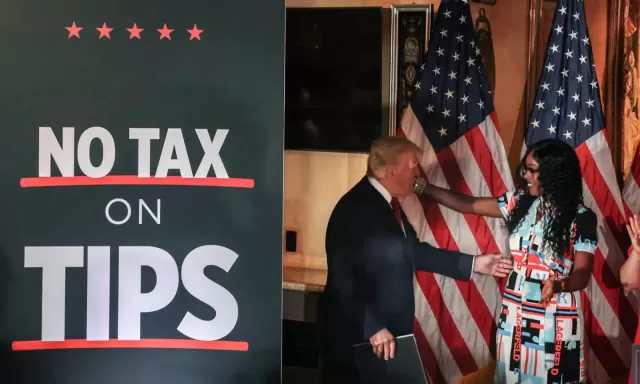"No Tax on Tips": A Closer Look at the Proposed Policy and Its Potential Impact

A proposal to eliminate taxes on tips is gaining serious traction in Washington, sparking debate about its potential impact on workers and the economy. While politicians and many Americans seem to support the idea, some experts are raising concerns about its fairness, cost, and overall effectiveness.
The Senate recently approved a policy bill that includes a provision to make "no tax on tips" a reality, a move championed by the current administration. The House is now considering the legislation, with hopes of a quick passage. But what exactly does this proposal entail, and who stands to benefit most?
Breaking Down the Proposed Tax Changes
The Senate's bill proposes a temporary tax deduction for tip income through 2028. This differs from the House version, which would only apply to workers earning less than $160,000 annually. The Senate plan would gradually reduce the deduction for those making over $150,000, with a maximum deduction of $25,000.
The bill also introduces a new deduction for overtime pay, also expiring in 2028. Again, the Senate and House versions differ: the Senate caps the overtime deduction at $12,500 and reduces it for higher earners, while the House version has no cap but limits eligibility to those earning under $160,000.
Who Wins, Who Loses?
While the idea of no taxes on tips sounds appealing, the reality is more complex. A significant portion of tipped workers – roughly 37% – don't earn enough to pay federal income taxes, meaning they wouldn't see any benefit from the proposed deduction.
Critics also point out the potential unfairness to certain restaurant workers. Service charges, often used as an alternative to traditional tipping, wouldn't be covered by the tax break, potentially disadvantaging line cooks, dishwashers, and other essential staff. Some argue this could incentivize employers to push for more tip-based compensation, further exacerbating inequalities.
Potential Economic Impact
The Congressional Budget Office estimates that eliminating taxes on tips could increase the national deficit by $40 billion by 2028. This has raised concerns about the long-term financial implications of the proposal.
While some restaurant industry groups support the bill, others express reservations about its complexities and potential costs to both businesses and taxpayers. The debate highlights the challenges of creating tax policies that are both effective and equitable.
While the "no tax on tips" proposal enjoys broad support, its potential consequences are still being debated. Whether it will truly benefit the majority of tipped workers, and what its long-term impact on the economy will be, remains to be seen. As the bill moves through the legislative process, it's crucial to consider all sides of the issue to ensure a fair and effective outcome.